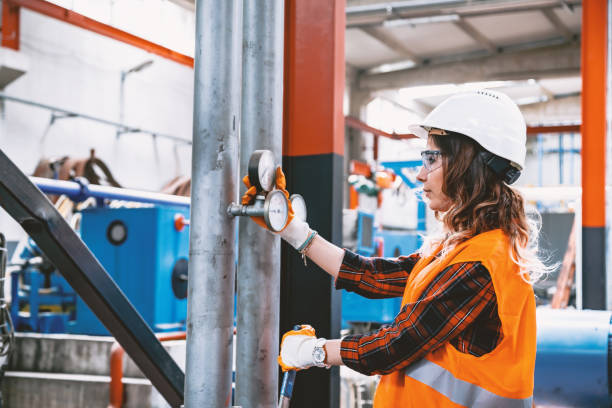Introduction
Your central heating boiler is a crucial component of your home’s heating system, and it’s essential to ensure it operates efficiently. One common issue homeowners encounter is a central heating boiler losing pressure. But what does it mean when this happens, and how can you address it? In this article, we’ll explore the reasons behind a pressure drop in your boiler and provide solutions to keep your heating system running smoothly.
The Importance of Boiler Pressure
Boiler pressure refers to the level of water pressure within your central heating system. It’s vital to maintain the correct pressure to ensure your boiler functions efficiently and safely.
Normal Boiler Pressure
The normal operating pressure for most central heating boilers typically ranges between 1 and 1.5 bar. However, it’s essential to check your boiler’s manual for specific pressure requirements.
Reasons for Losing Boiler Pressure
One common cause of pressure loss is leaks in the central heating system. Leaky pipes, radiator valves, or the boiler itself can lead to a drop in pressure.
Bleeding Radiators
When you bleed your radiators to remove trapped air, it can cause a temporary drop in boiler pressure. However, this is a normal part of routine maintenance.
Faulty Pressure Relief Valve
A malfunctioning pressure relief valve can release excess water, leading to a loss of pressure. This valve is designed to prevent overpressure in the system.
Addressing Boiler Pressure Issues
Check for Leaks
Inspect your central heating system for any visible leaks. Repair or replace any damaged components to prevent further pressure loss.
Re-Pressurize the Boiler
You can re-pressurize your boiler by using the filling loop, which is a valve typically located beneath the boiler. Follow the manufacturer’s instructions to add water and bring the pressure back to the recommended level.
Bleed Radiators Properly
When bleeding radiators, ensure you do it correctly by using a radiator key. Once the air is released, check the boiler’s pressure and top it up if necessary.
Replace Faulty Pressure Relief Valve
If the pressure relief valve is faulty, it should be replaced by a qualified heating engineer to prevent further issues.
Preventing Future Pressure Loss
Regular Maintenance
Schedule regular maintenance checks for your central heating system to identify and address potential issues before they lead to pressure loss.
Monitor Pressure
Keep an eye on your boiler’s pressure gauge and top up as needed to maintain the correct pressure.
Conclusion
A central heating boiler losing pressure is a common issue, but it’s essential to address it promptly to ensure your heating system works efficiently. By understanding the reasons behind pressure loss and taking appropriate measures, you can keep your home warm and comfortable throughout the year.
FAQs
Q1: Is it normal for my boiler’s pressure to drop slightly over time?
A1: Yes, a slight drop in pressure can be normal due to small water losses. However, significant pressure drops should be investigated.
Q2: Can I re-pressurize the boiler myself, or do I need a professional?
A2: You can re-pressurize the boiler yourself by following the manufacturer’s instructions. If you’re unsure, consult a heating engineer.
Q3: How often should I bleed my radiators?
A3: Bleeding radiators is typically done when you notice cold spots. It’s also a good practice to do it as part of annual maintenance.
Q4: What if I can’t find the source of a leak in my central heating system?
A4: If you can’t locate the source of the leak, it’s best to consult a heating professional to diagnose and repair the issue.
Q5: Can low boiler pressure cause damage to the system?
A5: Yes, low boiler pressure can lead to reduced efficiency and potential damage to the boiler and central heating system if not addressed promptly.





More Stories
Modern Roof Designs That Will Fit Your New Home
Protecting Your Roof During Hurricane Season: A Comprehensive Guide
5 Do’s for a Student Renting a Property